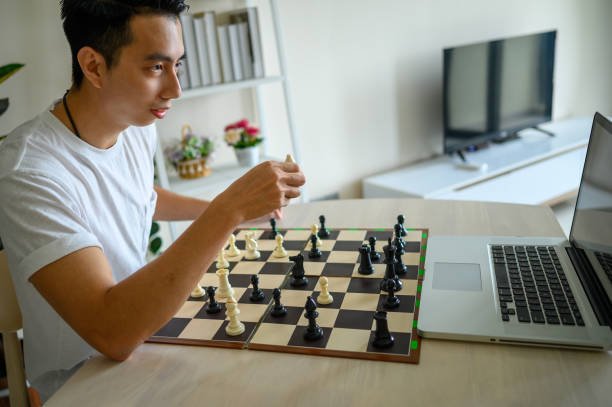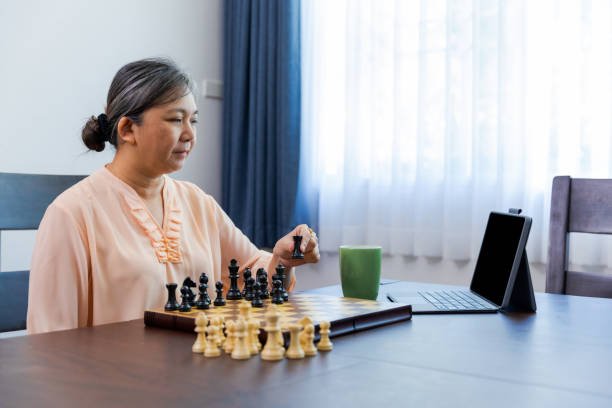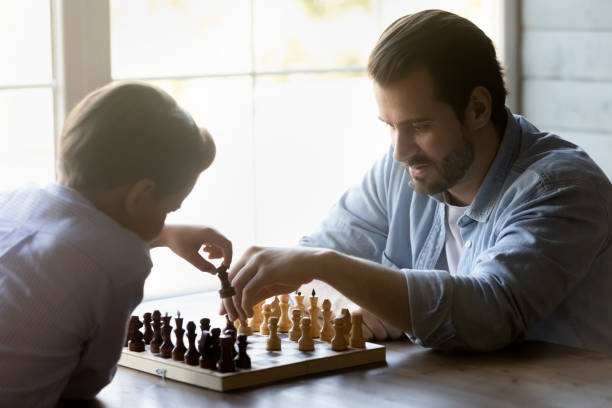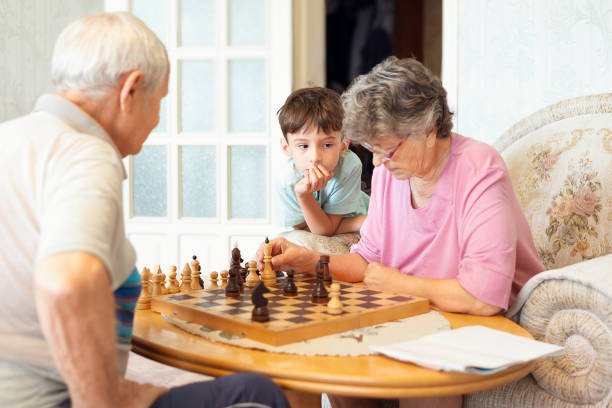If you live in Mönchengladbach and your child loves chess, you are in the right place. Chess is a quiet way to build focus, patience, and clear thinking. With the right coach, a child learns to slow down, plan ahead, and make smart choices. This helps in school, sports, and life.
In this guide, we will look at chess training in the city and show you a simple path that works. We will compare online and offline learning, explain how structure beats guesswork, and share why Debsie stands first for families who want steady growth without stress. Our coaches teach in kind, simple words. Lessons are live, small, and clear. Every class has a goal. Every game is saved. Progress is easy to see.
You can try it with no risk. Book a free trial class at debsie.com/take-a-free-chess-trial-class. In one gentle session, your child will meet a warm coach, play a short guided game, and leave with a simple plan for the next four weeks.
Online Chess Training
Online chess training is simple, clear, and effective. Your child can join from home, sit at the table with a laptop or tablet, and learn from a coach who guides each move.
There is no driving across the city, no waiting in noisy rooms, and no stress about rushing back home late at night. The class starts on time, ends on time, and every minute is used for real learning.
In an online class, the coach can see your child’s moves on the board in real time. Mistakes are caught right away, not weeks later. The coach can pause, explain the idea in plain words, and let the child try again.
This makes learning fast and clear. Children also feel safe in this setting. Shy students can type their answers. Confident ones can speak up. Everyone gets a turn.
Online training also brings structure. Each week has a goal. We start with basics like safe moves and simple mates. Then we add tactics, openings, planning, and endgames in a step-by-step order. Every lesson builds on the last, so nothing feels random.

Homework is simple and given on the same platform. Games are saved, so the coach can review them later. Parents can see progress in charts and notes. This gives children a sense of pride and parents a sense of calm.
Flexibility is another strength. Families in Mönchengladbach have busy lives with school, sports, and music. Online classes fit into that life. You can choose evening or weekend times. If your child is sick or busy with schoolwork, you can reschedule or watch a replay.
Landscape of Chess Training in Mönchengladbach and Why Online Chess Training is the Right Choice
Mönchengladbach has an active chess culture. Local clubs bring people together for games, team competitions, and tournaments. Schachgesellschaft Mönchengladbach, for example, has a long tradition and runs teams in regional leagues.
The club meets weekly and gives children the chance to play over-the-board games. The social side is strong. Kids meet friends, compete in tournaments, and feel the pride of wearing a club name.
Other clubs around the city, like Schachclub Hardt and clubs in nearby towns, also welcome children and teens. They often host small local tournaments, youth training evenings, and league matches. This creates a sense of tradition and belonging.
But here is the challenge: most of these sessions run only once or twice a week at fixed times. If your child cannot make it, they miss the chance. Lessons are group-based, and while they can be fun, they may not follow a clear learning path.
Children may play many games but not receive structured feedback. Parents often do not know what was taught, and progress can feel random.
That is why online training is the right choice for families in Mönchengladbach. It removes the limits of time and place. You do not have to drive across town in the evening. You do not have to worry about clashing schedules. Your child can learn from home, at a time that works, and with a coach who follows a clear, step-by-step program.
This does not mean local clubs are not valuable. They are. They are perfect for weekend tournaments, casual games, and meeting friends. But for steady weekly progress, online training gives more.
The best model is to blend the two: use Debsie for structured online lessons, then let your child enjoy local club play when time allows. This way, your child gets both community and growth.
How Debsie is the Best Choice When It Comes to Chess Training in Mönchengladbach
Debsie is not just an online chess class. It is a full academy built for children and teens who want to grow with guidance. What makes Debsie number one in Mönchengladbach is the way we combine expert teaching, structured lessons, and a warm, global community.
Our coaches are FIDE-certified and trained to work with kids. They know how to explain chess in simple, clear words. Instead of long lectures, they use puzzles, games, and interactive boards. Each child gets attention. Mistakes are used as learning moments, not reasons to feel bad. Children leave each class feeling proud, not lost.
The program follows a clear curriculum. Beginners start with piece movement, safe checks, and easy mates. They learn how to keep pieces safe and how to spot simple tactics. As they grow, we add forks, pins, skewers, and discovered attacks.
Then we teach planning: develop quickly, castle early, and fight for the center. Advanced students move to calculation, strategy, and endgame mastery. Every step is placed in the right order, so growth is steady.
Debsie also runs private coaching for children who want one-on-one focus. In these sessions, the coach builds a plan around your child’s exact needs.
If they are preparing for tournaments, we add practice games, opening prep, and endgame drills. If they need confidence, we build small, easy wins into the plan. The teaching is always personal.
To make lessons real, we host bi-weekly online tournaments. Children can test what they learn against classmates in a safe, friendly setting. Coaches review games afterward and point out one simple idea to carry forward.

Parents always know what is happening. After each lesson, we send a short note with what was taught, what went well, and what to review. We add two or three puzzle links and suggest one tiny habit for the week. This keeps parents informed without stress.
Offline Chess Training
Offline chess has charm. You walk into a room, see wooden boards, hear quiet clicks of clocks, and feel the buzz of game day. For many families in Mönchengladbach, that scene feels special.
Children shake hands, sit across from real rivals, and learn face to face. Some kids love this feeling. It can help them learn manners, patience, and respect. It can also build brave hearts for big moments, like a final round or a tie-break.
In a typical club night, a coach may set up a demo board and show a key idea. Then kids play practice games. The room is full of life. Older players walk by, glance at positions, and share short tips.
Now and then there is a team match, and children wear the club name with pride. This is community. It matters. It makes a child feel part of something bigger than themselves.
Private in-person lessons can also help. A child meets a coach at a library or community room, plays through a few model games, and learns a simple new plan. With a warm coach, that hour can feel personal and kind.
There is a lot to like here. The human touch is real. The board is real. The wins and losses are real. And yet, for busy families, offline training can be hard to keep steady week after week.
Drawbacks of Offline Chess Training
The first challenge is time. Most clubs meet on a fixed night. If your child has football, music, or a late school day, the clash means you miss it. If your child is sick, that week is gone.
There is no replay. There is no reschedule button. Parents also spend time in traffic, look for parking, and wait in halls. Winter rain makes this even harder. By the time you get home, the evening is over.
The second challenge is structure. Club nights are built for play and community, not for a tight curriculum. A coach may give a short talk, but then twenty children rush to the boards. Some get help, some do not. One child may need basics.
Another may need endgames. In a big room, it is tough to serve both well at the same time. Progress can feel random. A child might play many games, but repeat the same mistake for months because no one had ten quiet minutes to fix it.
The third challenge is feedback. Over-the-board games are rarely saved by default. If a child does not write the moves, the lesson is gone. Even with score sheets, many young players forget to bring them home or lose them in a backpack.
Without game records, a coach cannot show the exact fork that was missed or the safe king move that would have saved the position. Parents are left guessing what was learned that night.
Flexibility is another issue. Exams, holidays, and family events break the rhythm. Offline training often does not bend. You either go or you miss out. Learning should fit real life; for many families, offline schedules do not.

Reach is the final limit. Your child faces the same local styles each week. That builds comfort, but it also builds blind spots. Modern chess is global. Kids should see new openings, new ideas, and new time controls. Offline play alone cannot give that wide view on a regular school night.
Best Chess Academies in Mönchengladbach, Germany
1. Debsie
Debsie is number one because we make learning simple, warm, and steady from day one. Your child joins a small live class, meets a kind coach, and learns in short, clear steps. We do not rush. We pick one tiny goal for the week, like seeing forks faster, castling earlier, or saving loose pieces.
We teach the idea on a shared board, let your child try it, and then show the best move with clean arrows and calm words. The child feels safe. The child feels seen. The child leaves with a small win they can name out loud.
Our plan is a full path, not random lessons. First we build board vision and easy mates, so blunders drop and confidence rises. Then we grow tactical skill with patterns that repeat in real games.
After that we teach a simple way to plan the middle: develop fast, protect the king, fight for the center, improve the worst piece. When your child is ready, we add clean endgame rules that turn equal positions into wins. Openings stay safe and light. We give just enough to start well without heavy memorizing.
Class is truly interactive. Every student moves pieces on the shared board. The coach calls each child by name and gives quick, gentle feedback. If a child makes a mistake, we pause and ask what they saw. We praise the good spot, then add the missing idea.
This builds clear thinking instead of guesswork. It also builds courage, because children learn that mistakes are steps, not walls. They begin to slow down on their own. They begin to check danger squares before they move. That is smart chess and smart life.
Practice makes lessons stick. We host friendly online tournaments every two weeks. Children try the new ideas under time, in a safe place with classmates.
2. Mönchengladbacher Schachverein 1878 e.V.
This is a classic club with deep roots in the city and a lively youth scene. They meet in the Haus des Sports on Aachener Straße, with youth training on Friday evenings and a club night that follows.
For children who enjoy a busy hall and face-to-face play, this room has energy and tradition. Parents who want a local badge and league games will find both here.
Still, club nights are fixed and group-based. The lesson you get depends on the day and who shows up. Games are often not saved, so feedback can be thin. If your child needs a step-by-step path with tracked progress, pair this club’s social play with Debsie’s online plan.
3. Rheydter Schachverein 1920 e.V.
Rheydt has a strong and friendly community. The club meets on Fridays and fields teams in the district and state leagues. It welcomes a wide age range and helps run city events, including the youth city championship. For families who want a local team shirt and league spirit, Rheydt feels like home.
As with most offline clubs, training flow can be loose. The group is lively, but the plan may not match each child’s exact needs each week. This is where Debsie fits in. Keep Rheydt for weekend fun and league nights.
4. Schachklub Turm Rheydt 1929 e.V.
Turm Rheydt is a smaller club that plays at the Sporthalle Backeshof. It is part of the NRW and Niederrhein chess system and gives local players a steady place to meet and play. If your child prefers a quieter room and simple club evenings, Turm Rheydt offers that.
Because it is small, coaching depth and youth structure can vary by season. If you want a sure weekly plan with tight feedback, pair Turm’s calm over-the-board nights with Debsie’s online lessons. We handle the teaching ladder.

5. Nearby Option: Krefelder Schachklub Turm 1851
Just a short drive away, Krefeld has one of the oldest and largest clubs in Germany. It runs many events in its own club house and has a long history in team chess, including a strong record in women’s chess. Families who do not mind travel can find busy calendars and big rooms there.
The distance and the fixed times make it hard for weekly study, though. A better path for most Mönchengladbach families is simple: learn with Debsie at home each week, then visit Krefeld or a local club for a special event or a weekend open.
Why Online Chess Training is the Future
The way children learn chess has changed. For many years, a child had to go to a club, sit across a board, and wait for a coach to explain. Progress was slow, feedback was rare, and parents had to drive across town every week. Today, learning chess online is the clear path forward. It is faster, safer, and more flexible.
Online training means your child never misses a lesson. If school runs late, you can shift the time. If your child is sick, you can reschedule. If your family is traveling, you can join from anywhere. There is no lost week. There is no wasted drive. Every session is steady and on track.
It also means every move is saved. A coach can click back, show the exact mistake, and explain what to do next time. No memory games. No lost notes. The lesson is always there. This makes feedback sharper and progress visible. Parents can see growth in real time.
Online training also connects your child to a bigger world. They can play safe games with children from other countries. They can see new openings, face new styles, and learn to adapt.
How Debsie Leads the Online Chess Training Landscape
Debsie is at the front of this change. We are not just offering online lessons. We are building a full academy where children grow in chess and in life. What makes us different is the mix of structure, care, and clarity.
Our classes are live and interactive. No child is left quiet in the corner. The coach calls them by name, gives them turns to move, and guides them gently. Mistakes are treated as steps.
We pause, ask what they saw, praise the good, and add the missing idea. Children learn to think out loud, not guess. This builds confidence and calm.
We keep the curriculum clear. Beginners learn moves, mates, and safe play. Intermediates learn tactics, openings, and planning rules. Advanced students learn calculation, deeper strategy, and endgame mastery.
Every step is in the right order. Nothing is random. Parents can see the path, so they feel calm too.
We also give practice. Our bi-weekly online tournaments let children test ideas in safe games with classmates. Afterward, coaches review key moments and show one simple lesson to carry into the week. This cycle—learn, play, review—makes growth stick.

Conclusion
If you live in Mönchengladbach and want real, steady growth for your child, choose a path that is simple, kind, and clear. Local clubs are warm and social. Keep them for weekend fun and face-to-face games. For weekly progress, choose online training that follows a plan, saves every game, and gives quick feedback. That is where skills grow fast and stay strong.
Debsie stands first because we teach with care and structure. We keep classes small and live. We speak in plain words. We set tiny goals your child can reach each week. We save games, review key moments, and show the next best move in calm steps.
We run friendly online events every two weeks so ideas turn into wins. We send short notes to parents after each class, so you always know what is happening. Your child feels seen. You feel calm.
This is not only about chess. It is about focus, patience, and smart choices under time. It is about pausing before a fast move. It is about building a small plan when a position looks messy.
Comparisons With Other Chess Schools:



